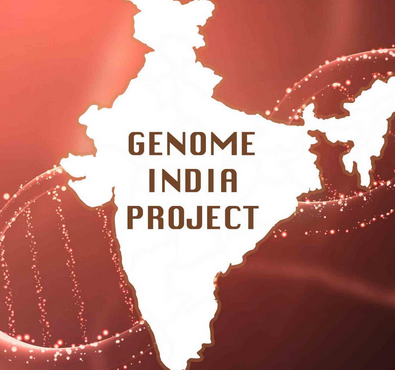Decoding the script : On the Genome India Project and its sequencing 10,000 Indian genomes
Findings from the genome-sequencing must be shared widely
The Genome India Project, a project funded and coordinated by the Department of Biotechnology, announced that it had finished sequencing 10,000 Indian genomes. This means that the complete genomes — the DNA blueprint that constitutes and maintains human bodies — from 10,000 individuals were analysed to create a ‘reference’ Indian human genome. India first sequenced a human genome in 2006. In a way, the latest enterprise would be akin to the creation of the first ever detailed map of India — with all political units, key geographical and topographical features — as opposed to a world map prepared elsewhere , with India just one of several countries and devoid of granular detail. Are 10,000 individuals representative of a country of over a billion? Surely not. But for now, it is the best there is and forms a vital template , the basis on which many more insights can be prised . The most immediate application is in combating disease. In 2009, geneticists in India, as part of an international collaboration, discovered that an aberration in a protein, MYBPC3 (cardiac myosin binding protein C), was correlated with a high risk of heart failure. This Genetic Variant was present in approximately 4% of those of Indian ancestry — a higher than expected number given that this problematic variant is rare.
India has close to 4,500 population groups and the subcontinent ’s history of being ordered along caste lines through endogamy implies that rare genetic variants, many harmful, that ordinarily through the course of evolution ought to have died out , persist . When the Human Genome Project published its reference ‘human genome’ in 2003, at a cost of nearly $3 billion, it rang with a ‘brave-new-world’ promise of humanity having finally decoded the secrets of the genome, mapping every awry gene to a disease and a future of ‘personalised medicine’. Much of Genome India’s sales pitch reflects similar promises. However, the subsequent decades have tempered such expectations. For one, only a small fraction of disease is monogenic (determined by a single gene). Despite advances in knowledge of how rare, inherited genes caused debilitating disease, little could be done as the necessary medicines, if discovered, were usually too expensive for those in need. In other words, genome sequencing only opened up new realms of complexity . While Genome India should go beyond the 10,000 mark, it must also be truly democratic. The findings ought not be locked up in the ivory towers of academia and should involve imaginative collaborations with scientists, students, technology companies, ethicists and social scientists to push forward India’s understanding of itself.
